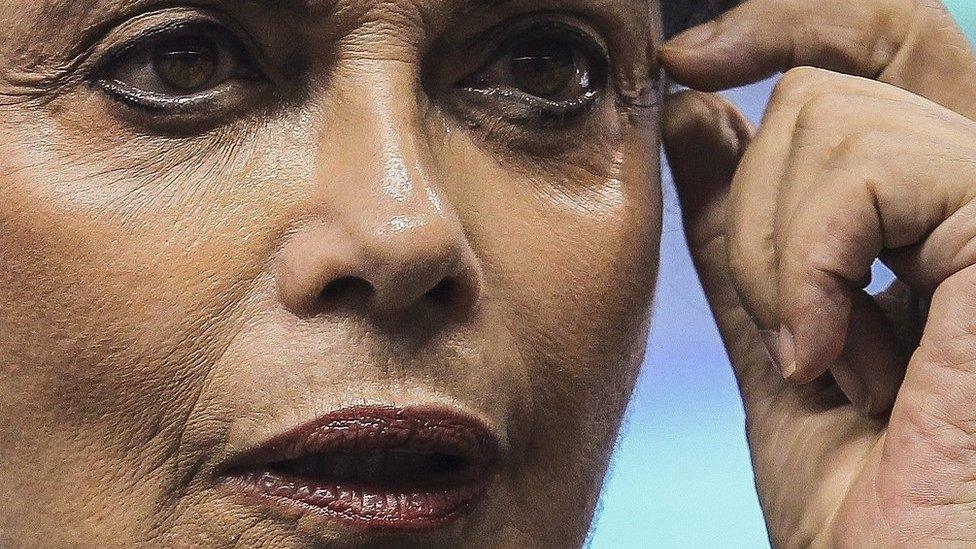Brazil's President Michel Temer denies hush money claim
- Published
Hundreds of protesters gathered in Sao Paulo calling for the impeachment of President Michel Temer
President Michel Temer of Brazil has denied a newspaper report that he has been recorded backing paying off a witness in a huge corruption scandal.
O Globo newspaper said Mr Temer had been recorded discussing payments to silence the jailed former Speaker Eduardo Cunha.
Opposition politicians called for snap elections and impeachment proceedings, while protesters took to the streets.
Mr Temer's office said he had never requested payments to Mr Cunha.
Mr Cunha was jailed for 15 years in March for corruption, money laundering and tax evasion, as part of a major investigation into corruption at state oil giant Petrobras, dubbed Operation Car Wash.
He led the impeachment process against President Dilma Rousseff - who Mr Temer replaced - and was one of Brazil's most powerful politicians before his arrest.
Almost a third of the cabinet is under investigation for alleged corruption.
What is alleged to be in the recording?
The recording is of a conversation between the president and Chairman Joesley Batista of meat giant JBS, made by Mr Batista using a hidden device, O Globo says.
When Mr Batista told Mr Temer he was paying Cunha to remain silent, the president was recorded saying, "You need to keep that up, okay?" the newspaper reported.
It did not say how it obtained the information, or what Mr Cunha was being asked to keep quiet about.
The newspaper says the recording was presented in plea bargain negotiations between prosecutors and two JBS executives.
It was part of a wider sting operation mounted by Brazilian police in conjunction with senior JBS executives to snare several politicians, O Globo says.

A massive game-changer: Analysis by Julia Carneiro, BBC News, Rio de Janeiro
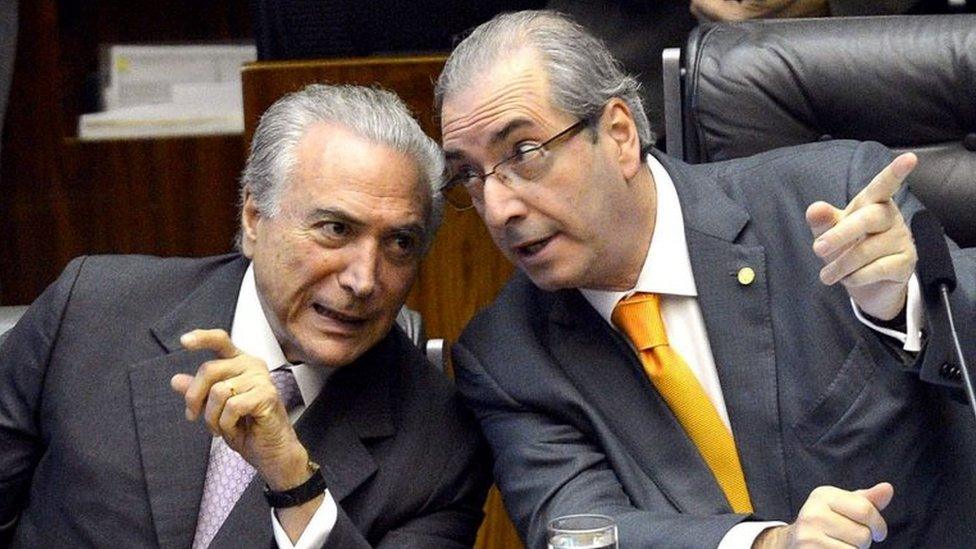
Michel Temer (left) is seen here with Eduardo Cunha in November 2015
The content of the alleged recordings is so grave that the shockwaves quickly rippled across the country.
There was turmoil in Congress, with opposition members calling for snap elections and filing at least two official impeachment requests within hours against President Temer.
Protesters took to the streets in Sao Paulo and Brasilia, calling for the president to resign.
There was also loud pot-banging from windows in cities like Rio de Janeiro, Salvador and Recife.
On social media, the question of what will happen now is being asked, while on Brazil's main news channel, political commentators have referred to this as a "point of no return". President Temer denied the allegations and called for them to be thoroughly investigated.
Whatever the outcome, this is a massive game-changer - the first time Mr Temer has been directly implicated in the massive corruption inquiry known as Car Wash. The effect will be even more damning should the audio of the recording be made public.

What does the president say?
Mr Temer's office says the allegations are false and is calling for them to be thoroughly investigated.
"President Michel Temer has never requested payments to obtain the silence of former MP Eduardo Cunha," it said.
"He did not participate in, nor did he authorise, any movement with an aim to avoid that the former congressman make a plea bargain deal or co-operate with justice."
It confirmed that a meeting with a JBS executive had taken place in March but said "there was nothing in the dialogue that would compromise the president's conduct".
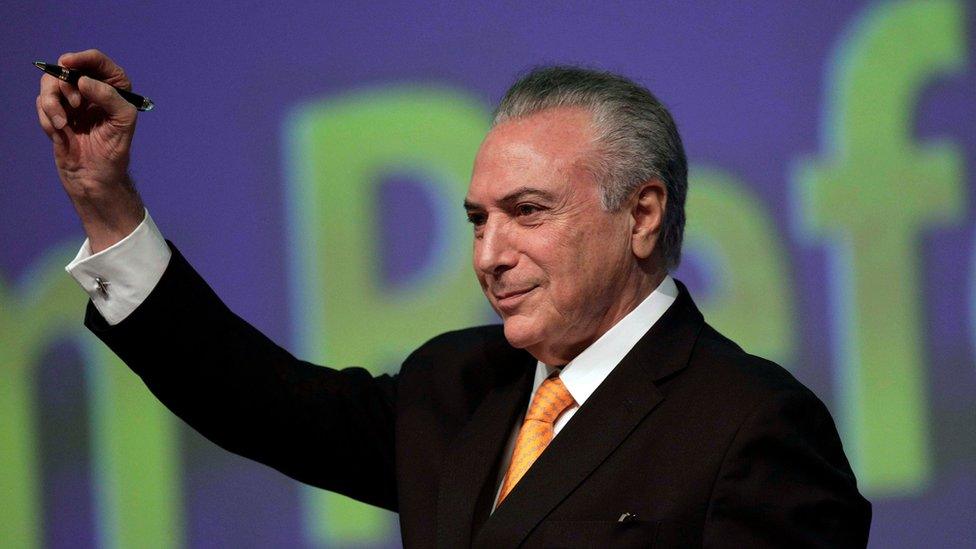
Mr Temer helped impeach Dilma Rousseff before replacing her as president last year
Who is Mr Temer?
Mr Temer, a former law professor, played a key role in the impeachment proceedings against his predecessor, President Dilma Rousseff, last year.
As vice-president, he replaced her after she was impeached and removed from office, accused of illegally manipulating government accounts.
She denied the claims and accused both Mr Temer and Mr Cunha, both from the same political party, of being "chief and vice-chief of a coup" against her.
Mr Temer, in office until elections next year, is trying to push forward reforms aimed at ending the country's deep recession.
What is the wider corruption story?
Mr Cunha is the highest-profile politician to be convicted in Operation Car Wash, the vast investigation into corruption at state oil giant Petrobras.
The probe, launched in March 2014, centres on companies that were offered deals with Petrobras in exchange for bribes, which were funnelled into politicians' pockets and political-party slush funds.
In April, a judge released a list of dozens of politicians to be investigated, including almost a third of President Michel Temer's cabinet - among them Foreign Minister Aloysio Nunes and the president's chief of staff.
It came after 77 executives from Odebrecht, Latin America's largest construction conglomerate, entered into plea deals, agreeing to provide information in exchange for more lenient sentences.
- Published12 May 2016
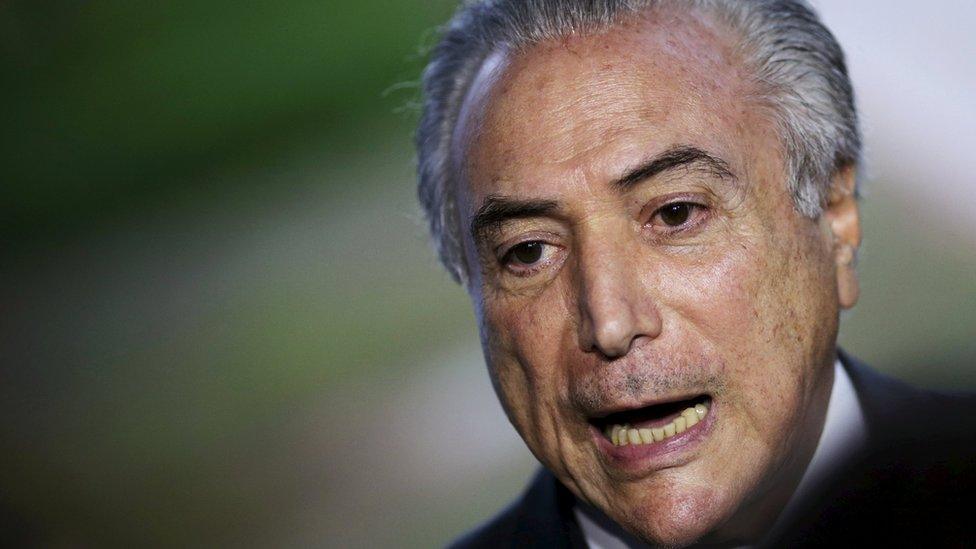
- Published12 May 2017
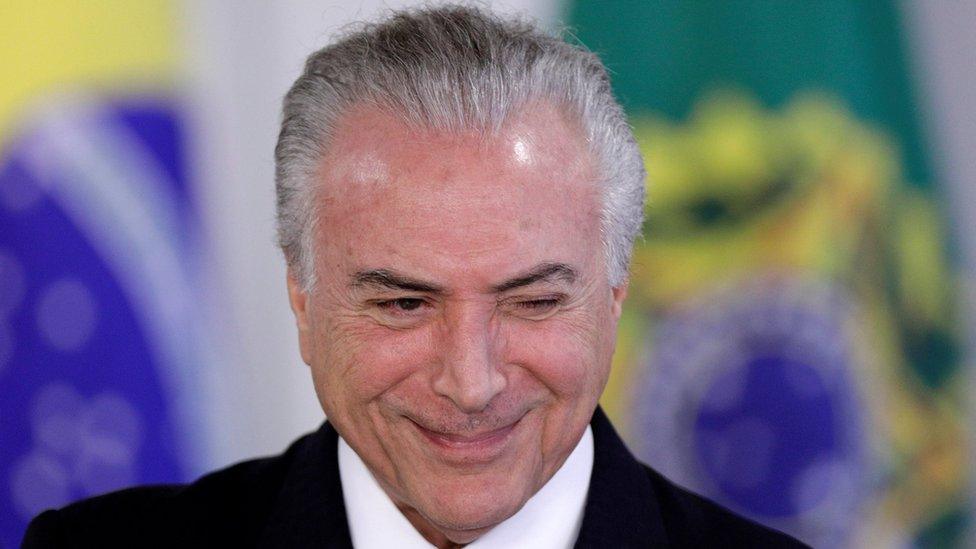
- Published11 May 2017
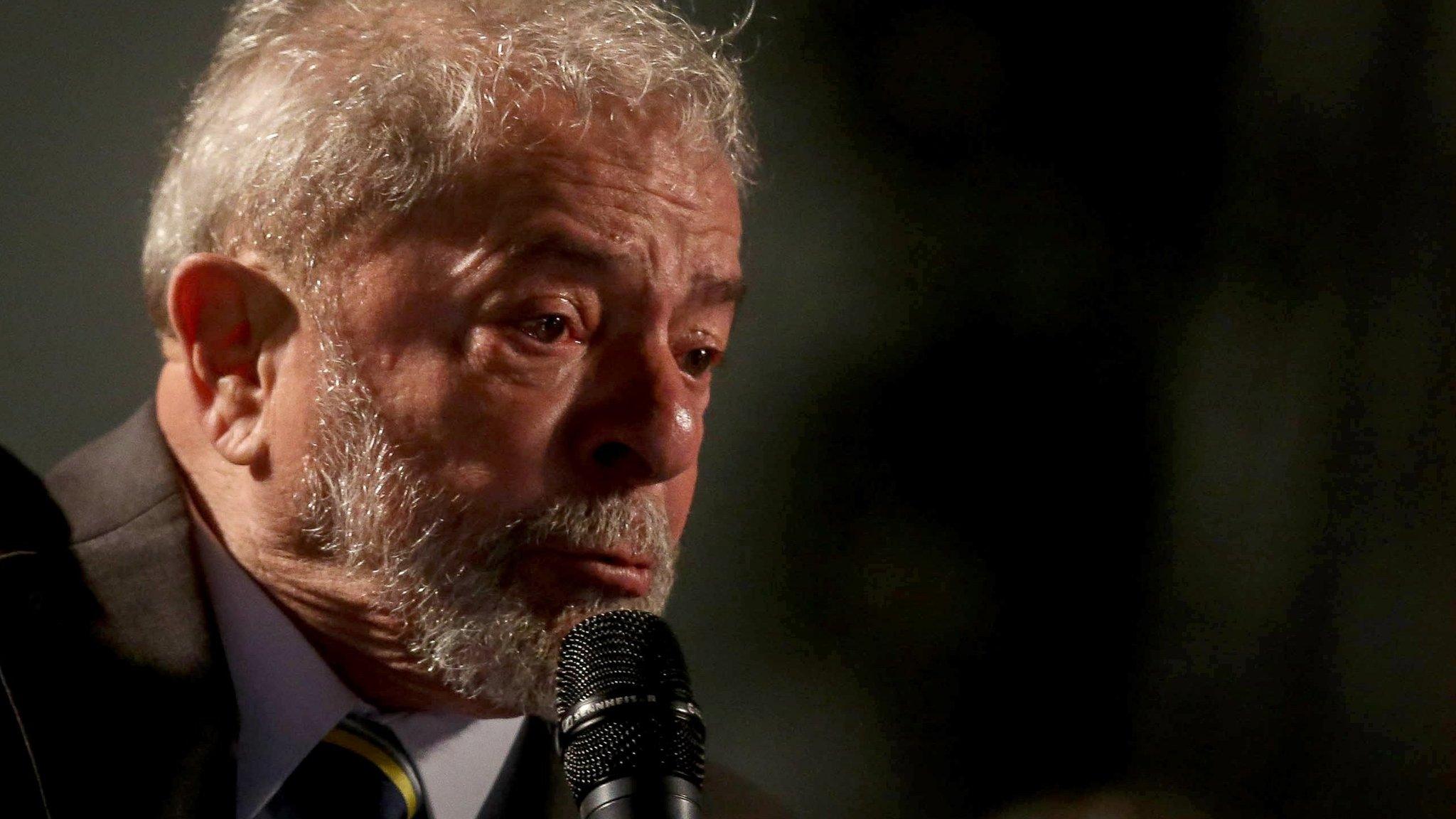
- Published12 April 2017
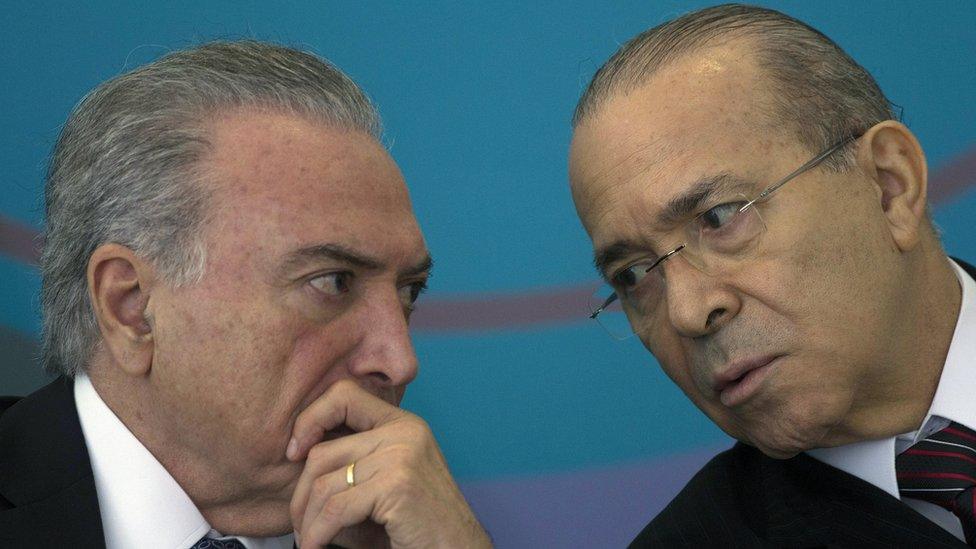
- Published12 May 2016
